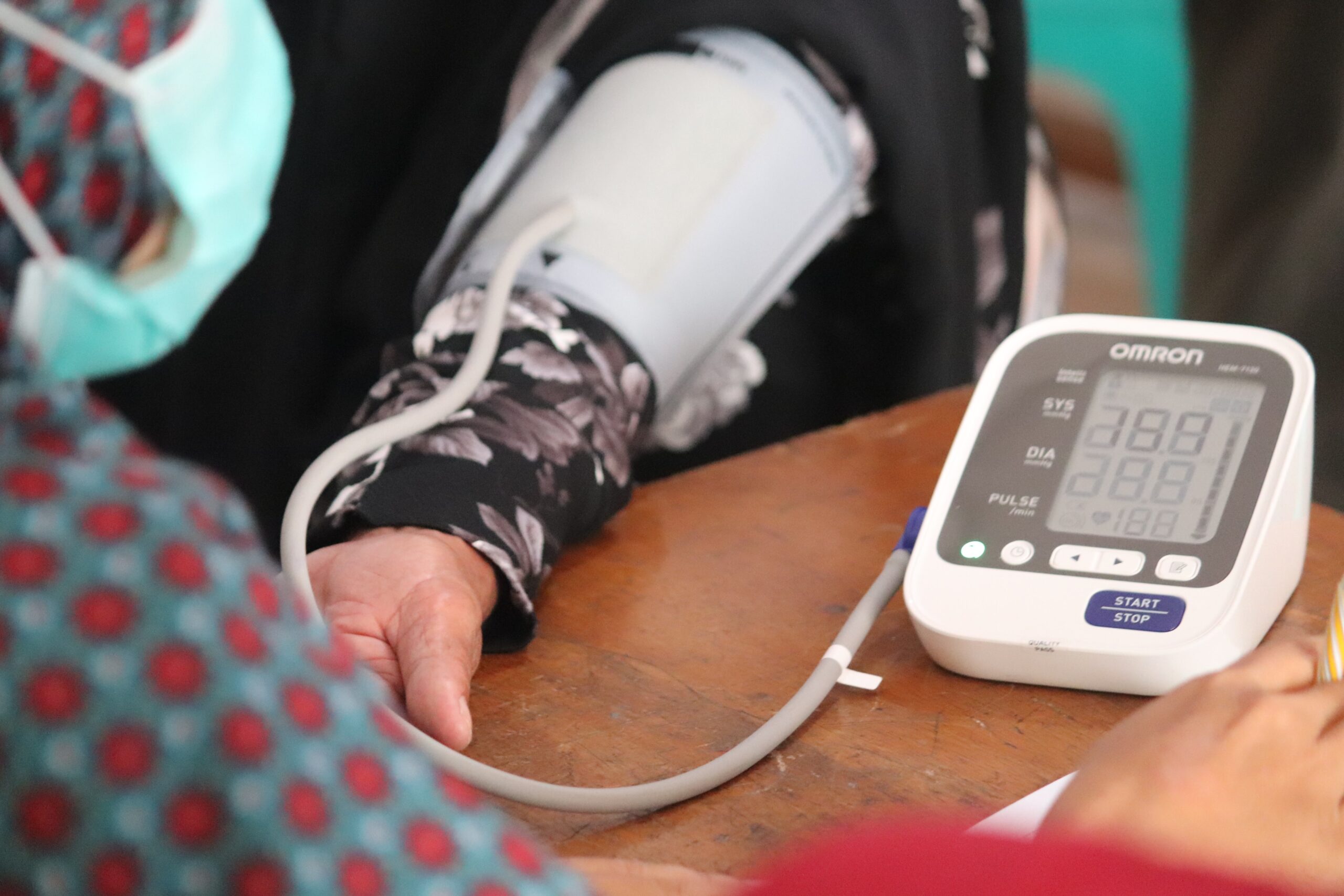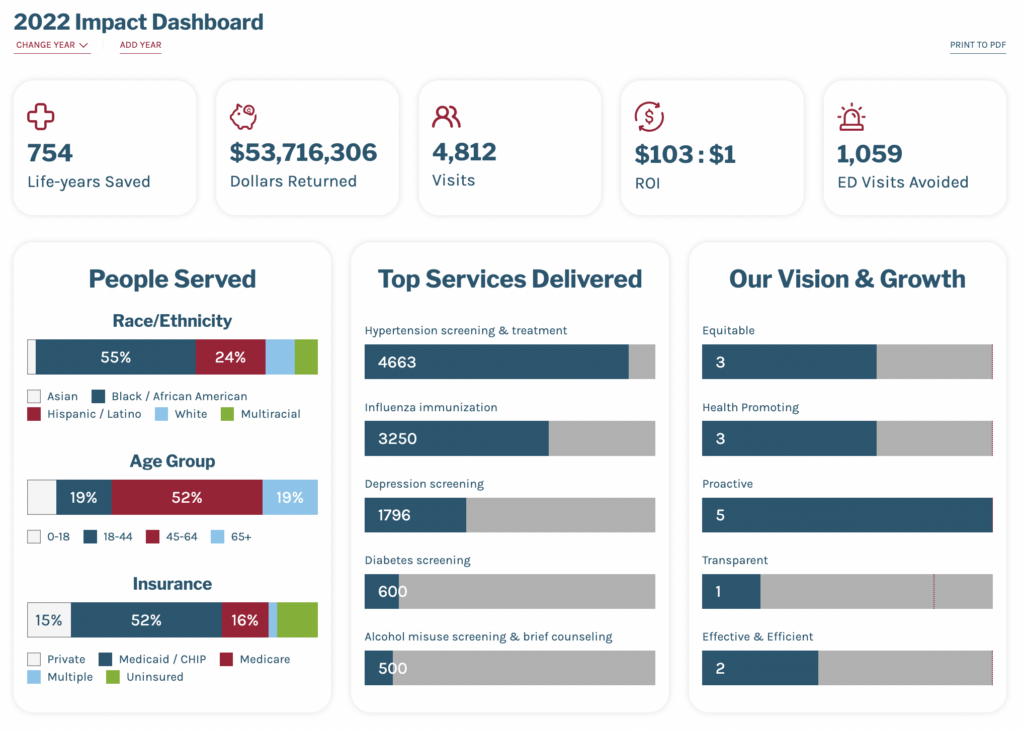On your mobile clinic’s dashboard: Health promoting strategies

by Tyler LeComer, Harvard Medical School, MD Candidate
On Mobile Health Map, users create their own dashboards – visual displays of their data. The dashboard provides mobile clinics with actionable insights and helps them tell their mobile clinic’s unique story of service and impact. An important part of the dashboard is public health quality. Read more below on how mobile clinics can ensure they are providing quality services by making ensuring their program if health promoting.
Key points:
- Mobile clinics promote health and serve as a bridges to care, including knowledge and resources that help people develop healthy habits for the long-term.
- Mobile clinics offer counseling and education, use clinical interventions, use long-term interventions, and address social determinants of health.
- Evaluate your clinic’s public health quality by creating a personalized dashboard that includes a set of questions about your mobile program’s health promoting strategies.
Have you ever left a the doctor’s office or hospital confused? Heard works you didn’t know existed? Baffled by the health system? Struggling to translate what you heard into action?. You would certainly not be alone in this. Half of English-speaking patients face difficulty understanding and utilizing health information. This is a hallmark of the country’s inadequate teaching of health literacy.
A health promoting program adopts policies and strategies that advance safe practices by providers and the population and that increase the probability of positive health behavior and outcomes. There are many conditions that cause long-term effects or send people to the emergency room that would be preventable with the right knowledge and resources. On top of that, those consequences lead to higher costs for both the patient and the whole healthcare system.
Mobile clinics (yours included!) not only serve as a bridges to healthcare and resources, but also as bridges to health literacy that benefit clients by taking small steps to improve understanding. Mobile clinics promote health and provide people with the knowledge and resources to develop healthy habits and take care of their own health until their next visit and beyond.
How do mobile clinics promote health?
Offer counseling and education
Clients should leave with more knowledge than they walked on with. They should learn about preventable conditions that they can keep at bay through lifestyle changes, and they should gain an understanding about steps they can take to improve upon their own health after they leave the mobile clinic.
Use clinical interventions
In addition to counseling and education, many mobile clinics provide clinical care. In addition to understanding what the community needs and wants, refer to guidelines for your specialty. For example, mobile clinics that provide pediatric or adult primary care, prenatal care, or prevention services, should refer to the USPSTF recommendations.
Use long-term interventions
Some interventions are long-lasting, with benefits that continue years or even decades after a visit to the mobile clinic. One important example is vaccinations. Mobile clinics can play a significant role in ensuring communities have access to vaccines. This was especially clear during the ongoing COVID-19 pandemic with the distribution of new vaccines to underserved communities via mobile clinics, providing vaccine access to many people who otherwise would have missed out.
Address the social determinants of health
Put simply, health starts at home. Your neighborhood, where you buy groceries, and access to green space all play a role in your overall health. Children are also affected by the quality of food in their schools. Air pollution is associated with childhood asthma. Mobile clinics should seek to understand the client’s full context, including living conditions and access to resources.
Evaluate your clinic’s public health quality by creating a personalized dashboard
Creating a dashboard to demonstrate quality is an easy way to share important information on mobile health map. When you create a dashboard for your mobile clinic, you will answer a series of questions about your program’s health promoting strategies. Together with other elements of public health quality, including equitable, proactive, transparent, and effective and efficient, evaluating the degree to which your program is health promoting helps you understand and communicate your vision and growth.

Mobile clinics are an effective way to advance health equity. By providing counseling, education, clinical care, and long-term interventions, they are making an impact. In addition, they are uniquely positioned to understand, identify, and address social determinants of health.
By creating a personalized dashboards that measures public health quality, you can assess your progress and maximize impact. Take action today! Create your dashboard today and examine just what great work you have been doing by improving public health with your mobile clinic!
Ty is a third year medical student with a passion for equity and accessibility in healthcare. He likes to spend his time exercising (especially outdoors), cooking, and traveling.

